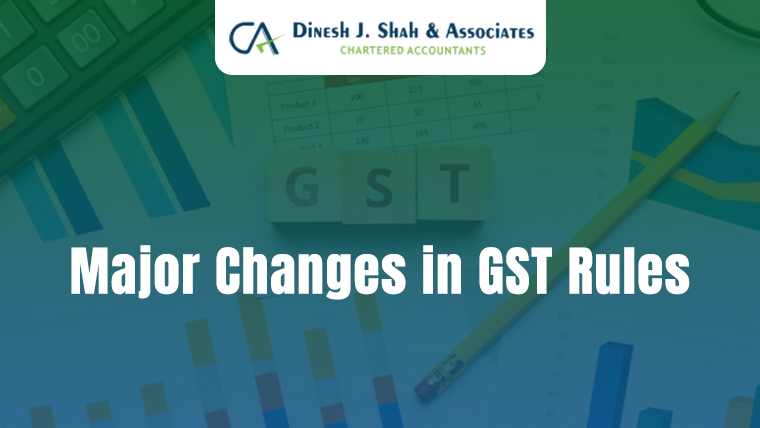Major Changes in GST Rules
There is a need to improve systems and upgrade the rules to protect from fraud like fake invoicing.
The latest a mendments in GST rules effects ITC limit, GSTR 1 filing, Cash payment, Cancellation and suspension of RC, E-way bill, and Registration are given below in the detailed form
All Major Changes in GST Rules was Effective from 1 Jan 2021:-
All the updates from this date are:
ITC Limit
There is a rule 36(4) has been amended for the registered person. Earlier the ITC Limit was 10%. The maximum legitimate limit of Input Tax Credit above the GSTR 2A amount was reduced to 5%.
GSTR 1 Filing
The suppliers have to file the GSTR 1 compulsorily. Also, in GSTR-1, the uploading of invoices will not be sufficient. According to the scheme of QRMP (Quarterly return and monthly payment), it is mandatory to file the GSTR 3B before 2 months/ one tax period to file the GSTR 1.
Cash payment
There is an insertion of a new rule 86B for subject to exemptions. In this, those persons whose taxable turnover is greater than 50 lakhs per month or tax period have to pay at least 1% of tax via cash ledger compulsorily. You cannot pay through the credit ledger even though the balance is available in it.
All Major Changes in GST Rules was Effective from 22 Dec 2020:
All GST Changes from this date are:
Cancellation of RC (Reverse Charge)
A taxpayer must have the following things so that the Cancellation of GSTIN can be proceeded by the officer:
Avails Input tax credit exceeding in violation of what is permissible.
Declares liability in GSTR 3B is less than the GSTR 1 in a particular month.
If there is a violation in rule 86B, it fails to pay the rest of 1% of tax liability, if the cash turnover is more than 50 lakhs.
Suspension of RC (Reverse Charge)
If there are reasons that fit into the suspension of GSTIN, then the officer will suspend the person’s GSTIN and cancel the Registration. The person doesn’t get a chance to clarify the suspension of RC if the person is liable. Taxpayers cannot be able to avail themselves of a refund. There is no generation of E-way bills.
E-way bill
There is a change in rule 138(10) for travel time. There is a reduction of travel time in the E-way bill. Earlier, the minimum covered distance was 100kms per day. Now, the minimum covered distance has been increased to 200 km per day. An alternate option is provided for the travel time extension if the vehicle cannot reach the destination within the E-way bill validity. This extension is difficult to get.
Registration
Earlier the registration needs to be reviewed in a maximum of 3 days. Now, the registration tenure is increased to 7 days.
Earlier for grant registration, there was a 7-day time limit for the grant registration for physical verification. Now, this limit is increased to 30 days in making physical verification. Aadhar authentication is not mandatory for the applicant or department that feels fit to carry it out. Aadhar authentication is only applicable to the applicant doing new Registration.
Conclusion:-
GST council of India made some changes, which will take place from the 1 Jan 2021. GST taxpayers can understand these amendments in the policies and management of GST data. Previously users had to pay 10% of the ITC limit, but it is now reduced to 5%, a profitable deal for the GST taxpayers. Previously, users have to pay taxes using platforms, but 1% of tax should be paid in cash for now.
With the latest updates in the GST rules, the Indian government offers multiple benefits for the taxpayers, and they can manage to operate their GST in simple ways.(GST Changes)
M/s Dinesh J. Shah & Associates is a practicing CA firm in field of Taxation, GST, Audit, Project Finance and Government Subsidy for more than 20 years. If you need further clarification/query, you can contact us on 9825373707 or mail at info@djshahca.com or officeidk@gmail.com.
Table of Contents




